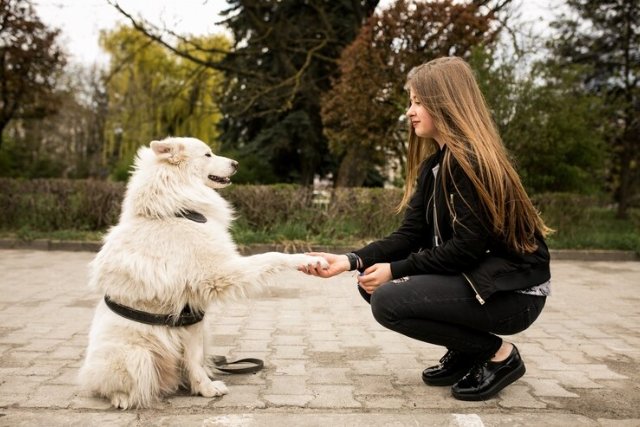Strong commitment, constancy, or allegiance to an individual, organization, cause, or ideal characterizes loyalty. Being loyal frequently means having integrity, dependability, and responsibility. Dogs are Loyal.
There are the following causes beyond dog’s loyalty

1. Domestication and Evolution
2. Biological factors
3. Aspects of behavior
4. Emotional bonds
5. Pack mentality
6. Non-judgmental nature
1. Domestication and Evolution
All members of the pack must be obedient and cooperative to survive. They regard their human owners as the “alpha” or pack leaders in their human households. Humans have tamed dogs for thousands of years.
2. Biological factors

Dogs depend on people for their food, housing, and security. Dogs that interact with people have higher oxytocin levels. This molecular bonding may promote allegiance.
3. Aspects of behavior
Reinforcing loyalty in dogs is primarily dependent on training. Dogs and their humans can form a close bond through routines and commands. Early socialization of dogs improves their loyalty and helps them become at ease in
human company. Giving dogs treats for good conduct allows them to associate their owners with happy memories, which increases their loyalty. Dogs frequently mimic actions that result in rewards. If their loyalty, keeping close, guarding the family, and obeying orders reward them with food,
compliments, or affection, they will stay faithful.
4. Emotional bonds

Dogs are social animals who need a company to survive. The time and experiences they spend with their human family foster a strong sense of loyalty. Dogs are emotionally intelligent creatures that can develop strong emotional relationships with their owners.
5. Pack mentality

Wolves, who are pack animals, are the ancestors of dogs and have a robust social framework. Cooperation and loyalty are necessary for a pack to survive. This pack mentality has persisted in domestic dogs, who frequently consider their human family to be their pack. As an outgrowth of their social impulses, loyalty is natural.
6. Non-judgmental nature
Dogs accept their owners without conditions and are normally non-judgmental. This lack of judgment fosters a deep friendship built on loyalty and trust in a secure and encouraging atmosphere.
Genetics behind dogs’ loyalty

Research on domesticated foxes can provide insight into how the contemporary dog descended from wolves. They were implying that changes in conduct and surroundings impacted their physical appearance.
Received care, improving their chances of being successful offspring.
1. Labrador Retriever

Animals develop close relationships with their
family and are frequently eager to please.
2. Golden Retriever
Golden retrievers are famous for their kind and
Devoted nature, much like labs.
3. German Shepherd

Settings, including family pets, assistance dogs, and
police. Dogs frequently develop close relationships with their owners.
4. Collie
Examples of these breeds are rough collie and border.
They frequently develop close bonds with their owners.
5. Boxer

They usually have a strong bond with children and
are loyal to their families.
Conclusion
Positive encounters, shared experiences, and the emotional ties built between dogs and their human companions all contribute to the future development of this loyalty.


One thought on “Why are Dogs so Loyal”